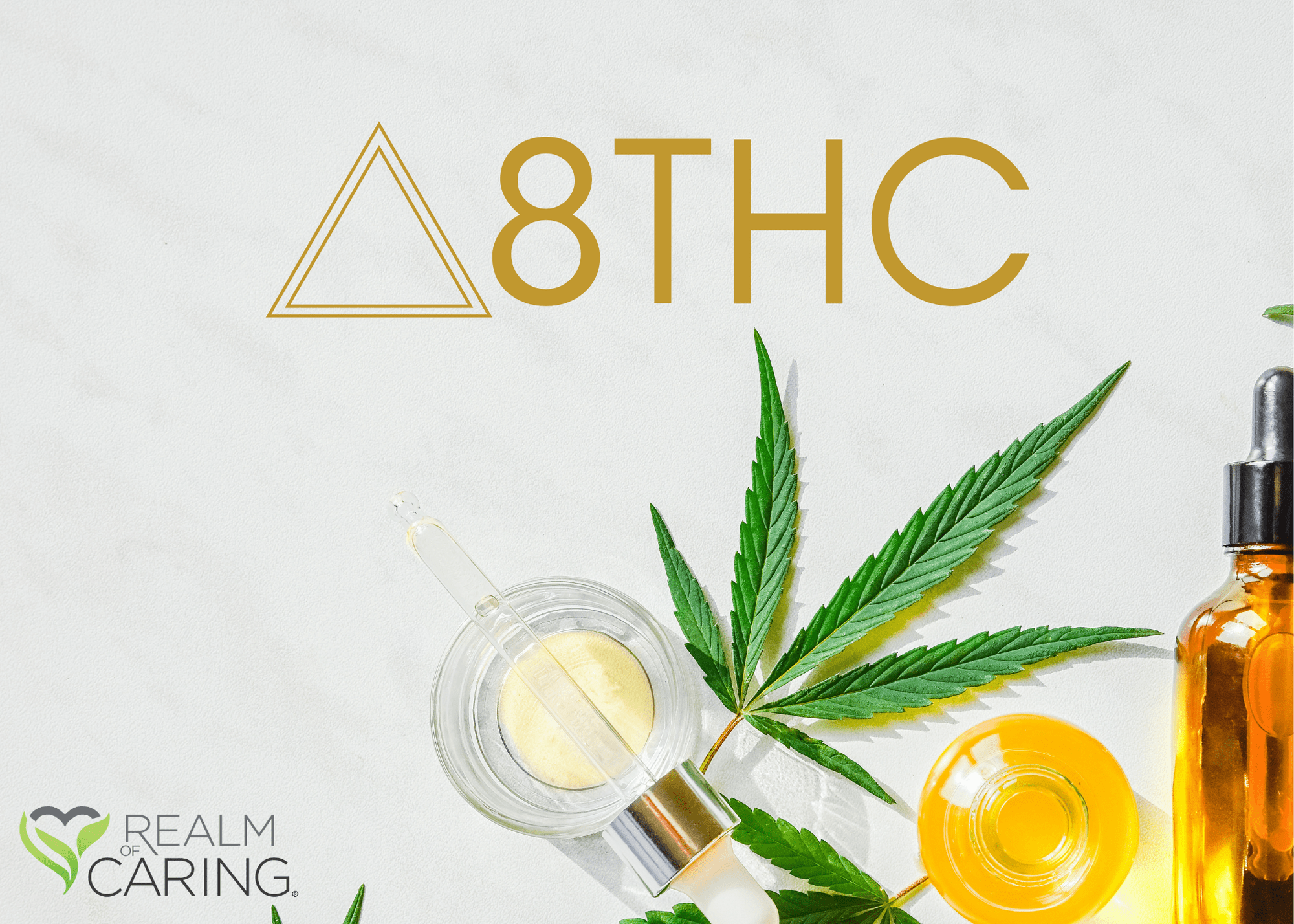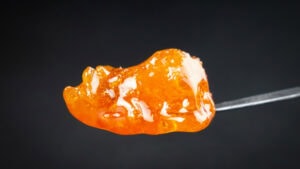Delta-8-Tetrahydrocannabinol (delta-8-THC) is a cannabinoid that is growing in popularity due to its accessibility in the hemp industry. It is less psychotropic and chemically more stable than its isomer Delta-9-Tetrahydrocannabinol (delta-9-THC), while still having its own researched benefits.
Delta-8-THC and Delta-9-THC are practically identical. They have the same molecular formula of C21H30O2; which also happens to be the same molecular formula as cannabinoids cannabichromene (CBC) and cannabidiol (CBD), and the hormone progesterone. Their metabolisms follow the same pathways and they have been researched for their like-benefits, as they both have an affinity for CB1 receptors in the brain. For example, both delta-8-THC and delta-9-THC have been studied for their benefits as antiglaucoma agents and for their ability to reduce tumor growth in rodent models. While their chemical behavior is very similar in most cases, there are a few chemical differences that set delta-8-THC and delta-9-THC apart.
First, delta-8-THC is less psychoactive than delta-9-THC, resulting in individuals being able to tolerate higher amounts per administration. In one study, children with hematologic cancers were able to take considerably higher doses of delta-8-THC than delta-9-THC to prevent vomiting due to antineoplastic treatment. They were administered 480 treatments of delta-8-THC and all participants reported feeling relief. This shows promise for delta-8-THC as an effective, yet inexpensive, option to relieve pediatric cancer patients of their nausea and vomiting from chemotherapy, with negligible side effects.
Another difference between the two are their chemical stability and how they are extracted. Delta-9-THC will readily oxidize to cannabinol (CBN) with oxygen, light, or natural aging. Delta-8-THC, on the other hand, is a stable molecule with a long shelf life. Although stable, extracting delta-8-THC is not quite as simple. Delta-8-THC grows in very small amounts in cannabis, however it may be able to be derived from hemp or from CBD; which also makes it technically legal in several states. Many delta-8-THC products are created synthetically by converting CBD into delta-8-THC through a process Dr. Raphael Mechoulam patented, called isomerization.
A few other differences to mention are some advantages that delta-8-THC may have. A study published in 2004 tested small amounts of delta-8-THC in mouse models for its effect on cognitive function and food consumption. Over the course of the study, delta-8-THC showed a tendency to improve cognitive function without the psychoactive effects that are typically associated with cannabis. Food intake increased with a similar performance to delta-9-THC but at a significantly higher rate, showing delta-8-THC as having therapeutic potential for weight disorders.
A question you may be curious about is: will delta-8-THC show up on a drug test that is looking for delta-9-THC? And the answer is, most likely. After cannabinoids are metabolized they are excreted for days. As THC molecules break down in the body, they become smaller molecules known as THC metabolites. The major, excreted glucuronic metabolite through the urine is THC-COOH glucuronide. The urine tests are not looking for the specific THC isomer that goes in the body, they are instead looking for the THC-COOH metabolites that come out.
As with many cannabinoids, much research still needs to be completed and considered on delta-8-THC before we can fully understand its full potential. What we do know is that there is a lot of promise as a less psychotropic alternative to delta-9-THC.
Disclaimer
The Realm of Caring Foundation specifically invokes the first amendment rights of freedom of speech and of the press without prejudice. These statements have not been evaluated by the food and drug administration. the products discussed are not intended to diagnose, cure, prevent or treat any disease. Realm of Caring always recommends when and wherever possible that licensed local healthcare professionals be consulted.
The Realm of Caring Foundation is an independent nonprofit with its own governing board. We do not produce or sell cannabinoid products, nor do we receive funds from the sale of other company’s products.







